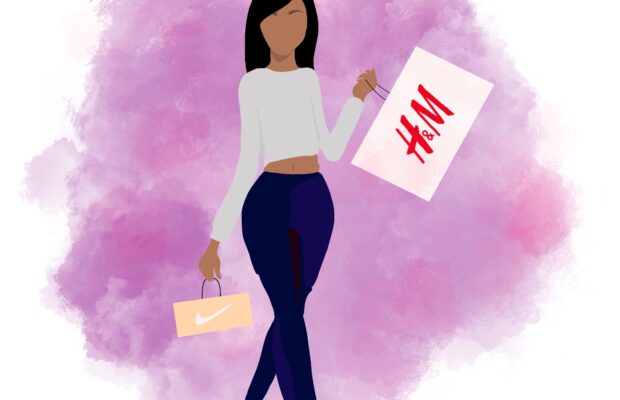Fast fashion is more complex than it “seams”

The fashion industry is steadily growing at a global level, and with it, fast fashion. With the rise of advocacy for sustainable practices, sustainable fashion has also been involved in the conversation. However, the world is simply not ready to switch over to fully sustainable sources of clothing, creating a lot of displaced shame and anger on consumers.
Obviously, fast fashion is a problematic and morally wrong practice: it is filled with workers not being paid full wages, unsanitary working conditions, pollution and other environmental hazards.
But not everyone is privileged enough to give up fast fashion entirely. For many low income individuals and families, fast fashion is all they are able to afford. Ethically produced clothing can come at a high cost. Although thrifting and secondhand stores are an option, the selection in many regions is sparse and not diverse. For employees who have to adhere to a dress code for example, this simply is not an option
This is not to say, however, that all fast fashion is cheap. While most well known retailers that are labelled as “fast fashion” (i.e. SHEIN, H&M) are, other more expensive brands, such as Zara, operate with the same fast fashion activities as the “lower end” ones. Nike, for example, has been under fire for having workers employed in sweatshops since the late 20th century. The company has shoes selling for hundreds of dollars, yet the 2019 Tailored Wages UK report by The Clean Clothes Campaign stated that “[Nike] show[s] no evidence of a Living Wage being paid to any workers.”
If you are able to shell out the money for expensive, unsustainable brands, then you are privileged enough to at least try to steer towards sustainable brands.
Fast fashion also tends to be more size inclusive than a sustainable company. Many fast fashion websites have an entire plus size section for individuals over a size 14, while contrastly, a sustainable company is less likely to have the same range of selection as its straight size counterpart, if there even is a selection.
For all their virtues, many sustainable brands have their own vices as well. Reformation, arguably one of the most bought sustainable retailers, has been exposed by many former employees for racist treatment. Lucy and Yak has been under fire for promising size inclusivity two years ago and failing to deliver, as well as failing to compensate influencers associated with the brand for emotional labor. The New York Times reported that at Everlane, another sustainable online retailer, “Investigators found that insensitive terms were used while discussing Black models; that leaders violated employees’ personal space by touching them, and used inappropriate terms when referring to people of color.” Just because a company has sustainable practices does not necessarily mean it is exempt from all other immoral incidents.
As a consumer, there are certain things you can do. Refraining from throwing away clothes and choosing pieces that you’ll get a significant amount of wear out of is the most sustainable option, which can be applied whether or not you shop sustainably. Furthermore, if you do have the privilege to be able to equally choose between supporting a fast fashion company versus a sustainable one, choosing the sustainable one is an ethically greater decision.
Shaming people for buying fast fashion disproportionately affects low income and plus size individuals due to the lack of accessibility. Companies should be held accountable for not adhering to fair labor laws, avoiding sustainable practices and lack size inclusivity. Placing the blame on the consumer is unproductive and wrong, and diverts attention from the real perpetrators.
Don’t waste your clothes.


